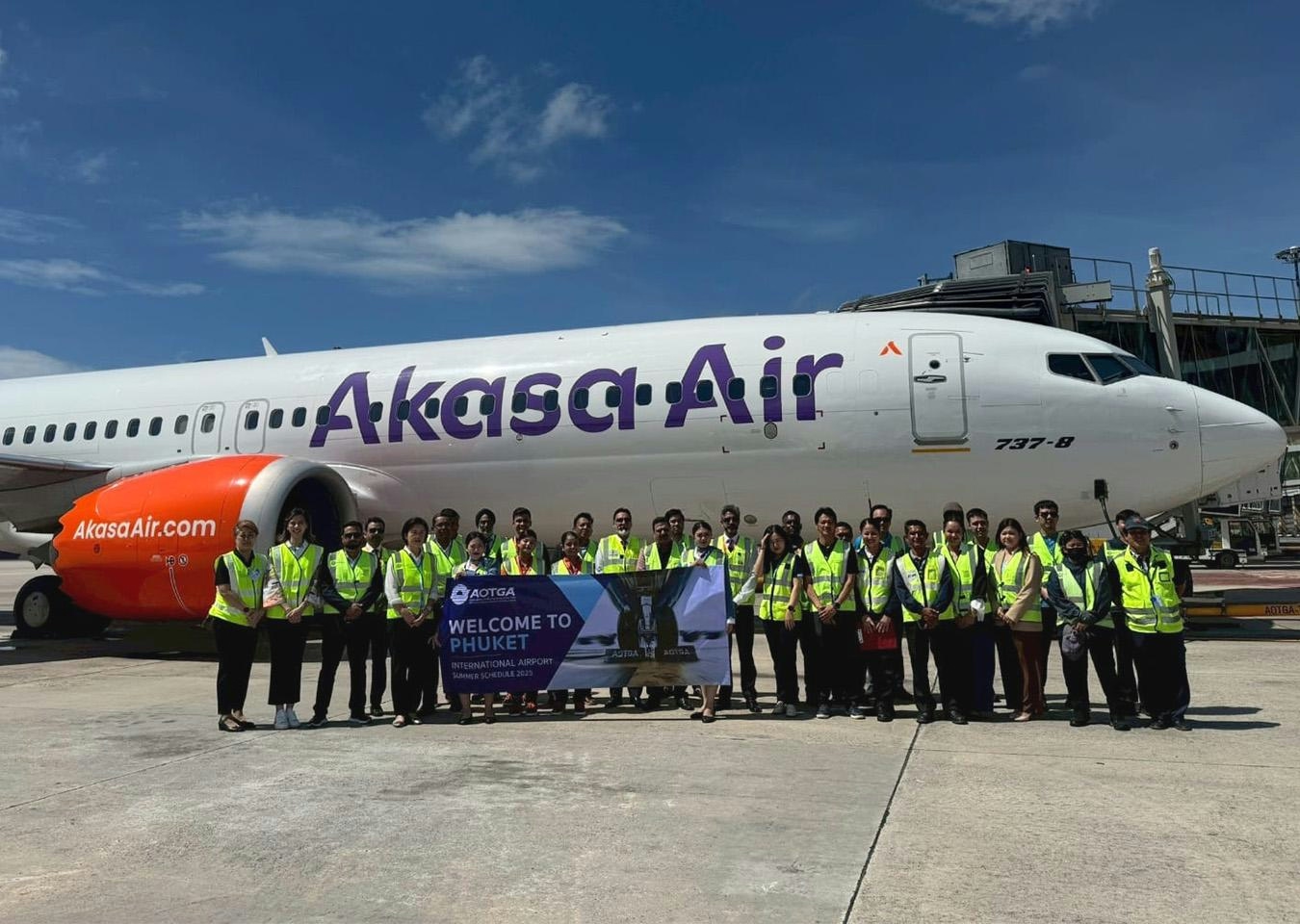AeroGenie — 您的智能副驾驶。
热门趋势
Categories
Akasa Air Highlights Sustainable Innovation on World Sustainability Day

Akasa Air Highlights Sustainable Innovation on World Sustainability Day
On World Sustainability Day, Akasa Air, India’s fastest-growing airline, reaffirmed its dedication to environmental stewardship by presenting a suite of sustainable innovations. As the airline continues its rapid expansion, it is embedding sustainability at the heart of its operations, striving to establish new standards for eco-friendly aviation both within India and internationally.
Advancing Sustainable Fleet Management
A cornerstone of Akasa Air’s sustainability agenda is its modern fleet of Boeing 737 MAX aircraft, currently the youngest and most fuel-efficient in India. These planes are powered by advanced CFM International LEAP-1B engines, which reduce fuel consumption and emissions by up to 20% compared to older models. The incorporation of enhanced winglet technology also decreases noise pollution by approximately 50%, contributing to quieter operations. Furthermore, the 737 MAX’s design lowers airframe maintenance costs by 20%, promoting both environmental and operational efficiency. Through meticulous fleet management practices, Akasa Air has conserved over 480,000 liters of water, underscoring its commitment to resource preservation.
Pioneering Industry Practices
Akasa Air is challenging conventional aviation norms through its sustainability initiatives. A notable example is the airline’s decision to eliminate traditional water cannon salutes during route inaugurations—a customary practice that consumes substantial water with limited environmental benefit. This step aligns with the airline’s broader objective to minimize waste and optimize resource use.
Leveraging Technology for Fuel Efficiency
In its pursuit of reducing carbon emissions, Akasa Air has partnered with OpenAirlines to deploy SkyBreathe®, a real-time fuel management system. By analyzing flight data, SkyBreathe® identifies opportunities to optimize fuel consumption, enabling the airline to lower emissions while improving operational efficiency.
Promoting Cleaner Ground Operations
Beyond flight operations, Akasa Air is advancing sustainability on the ground by integrating electric vehicles (EVs) into its airport activities. The replacement of fossil-fuel-powered vehicles with EVs for passenger and baggage transport supports cleaner airport environments and further diminishes the airline’s overall carbon footprint.
Commitment to Responsible E-Waste Management
Akasa Air’s sustainability efforts extend to responsible electronic waste management. In collaboration with eNamo, the airline has established e-waste collection booths at its offices, facilitating the proper disposal of batteries and electronic components by employees. This initiative helps divert e-waste from landfills and reduces emissions associated with improper disposal practices.
Sustainable Uniforms Reflecting Environmental Values
The airline’s commitment to sustainability is also evident in its employee uniforms. Crew members wear attire made from recycled polyester derived from marine waste plastic bottles, while ground services uniforms incorporate recycled materials developed in partnership with uppercase. These efforts highlight Akasa Air’s dedication to reducing environmental impact across all facets of its operations.
Navigating Challenges in Sustainable Aviation
While Akasa Air’s sustainable innovations represent a significant advancement, they come with inherent challenges. The adoption of new technologies and infrastructure demands substantial investment, potentially increasing operational costs in the short term. Market responses have been mixed; some consumers and investors applaud the airline’s green initiatives, whereas others question their cost-effectiveness and tangible impact. Competitors may either emulate these practices or challenge Akasa Air’s efforts. Moreover, the aviation sector faces broader pressures, including climate-induced supply chain disruptions and the urgent need for enhanced mitigation strategies to avert escalating global environmental crises.
Despite these obstacles, Akasa Air’s approach exemplifies how sustainability and innovation can coexist, offering a potential blueprint for the future of environmentally responsible aviation.

Emirates Unveils Cabin Design for New Boeing 777X

Eighteen Years On, the Airbus A380 Remains Central to a $34 Billion Airline

How a boom in luxury airline seats is slowing down jet deliveries

Navitaire Outage Attributed to Planned Maintenance

Airbus Plans Record Delivery of 870 Aircraft in 2026

DigiYatra Debuts Outside Aviation at India AI Impact Summit

Vietnam Orders Strengthen Boeing’s Commercial Outlook

Airbus Signals Uncertainty Over Future A400M Orders

JobsOhio Awards $2 Million Grant to Hartzell Propeller for Innovation Center

Collins Aerospace Tests Sidekick Autonomy Software on YFQ-42A for U.S. Air Force CCA Program
